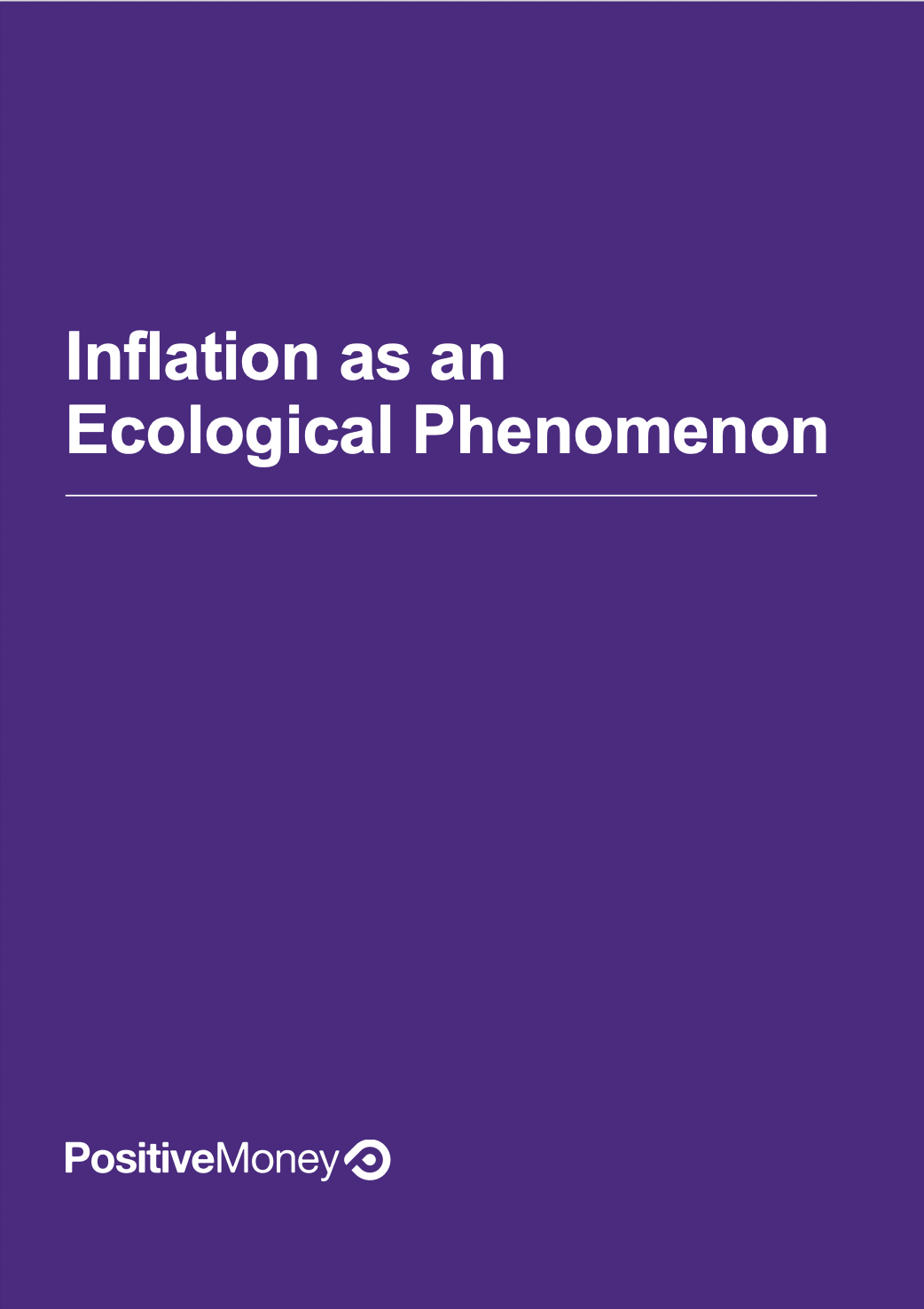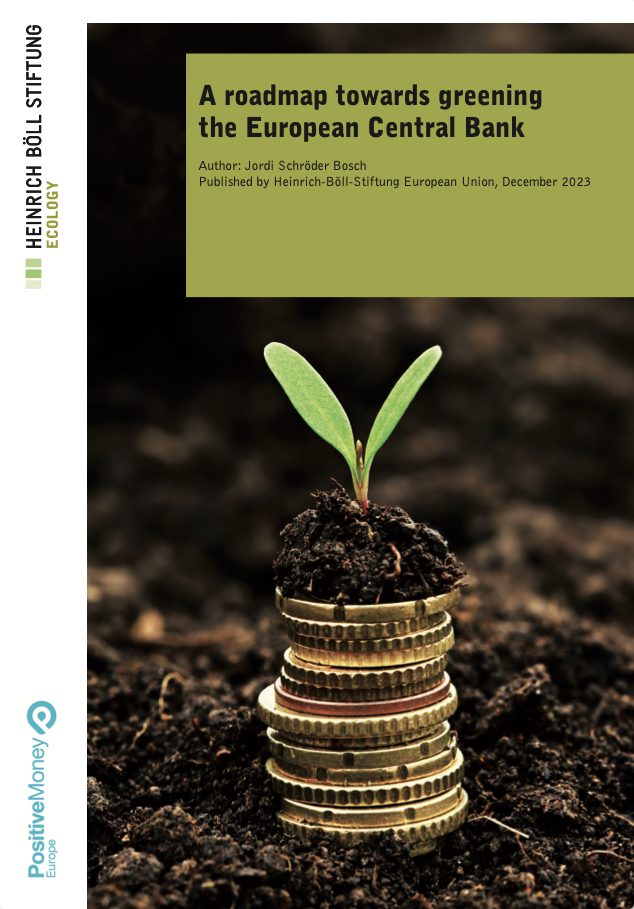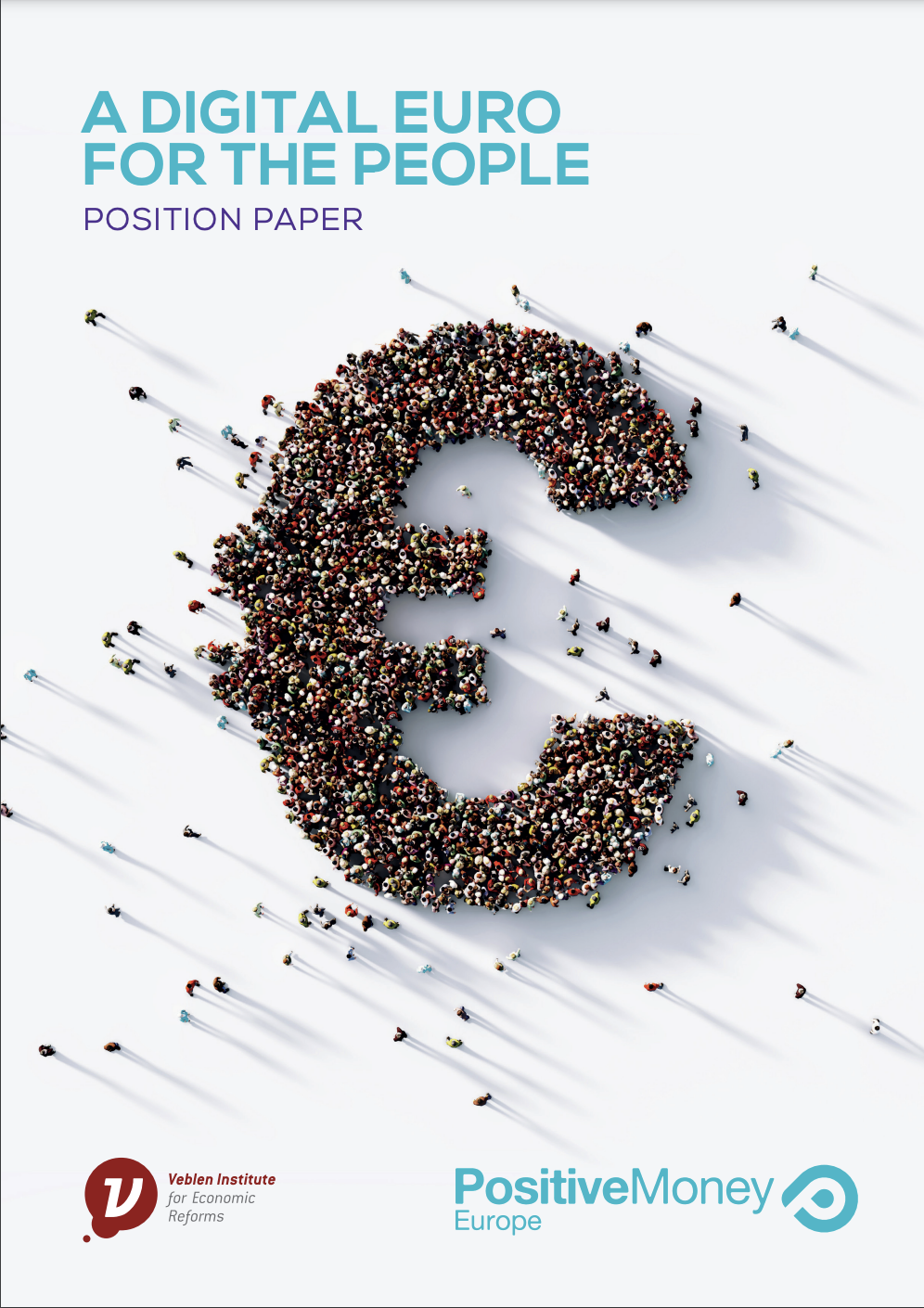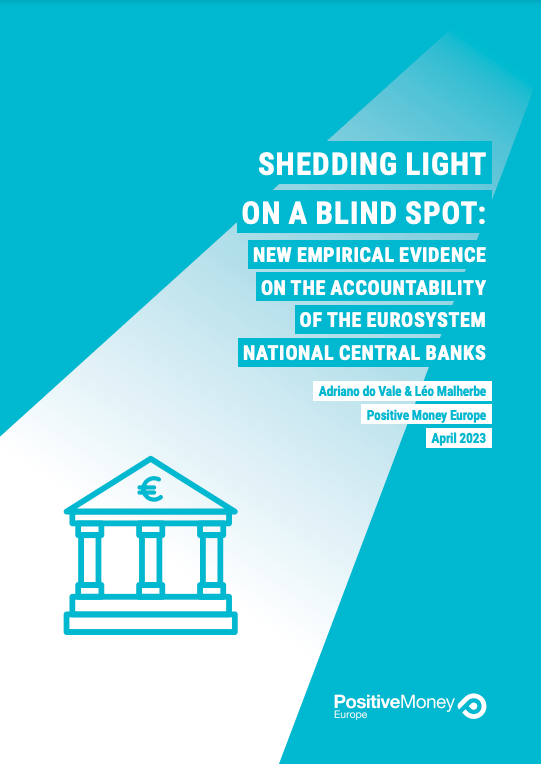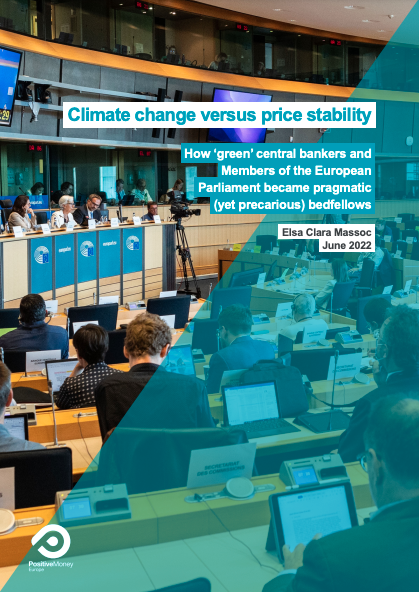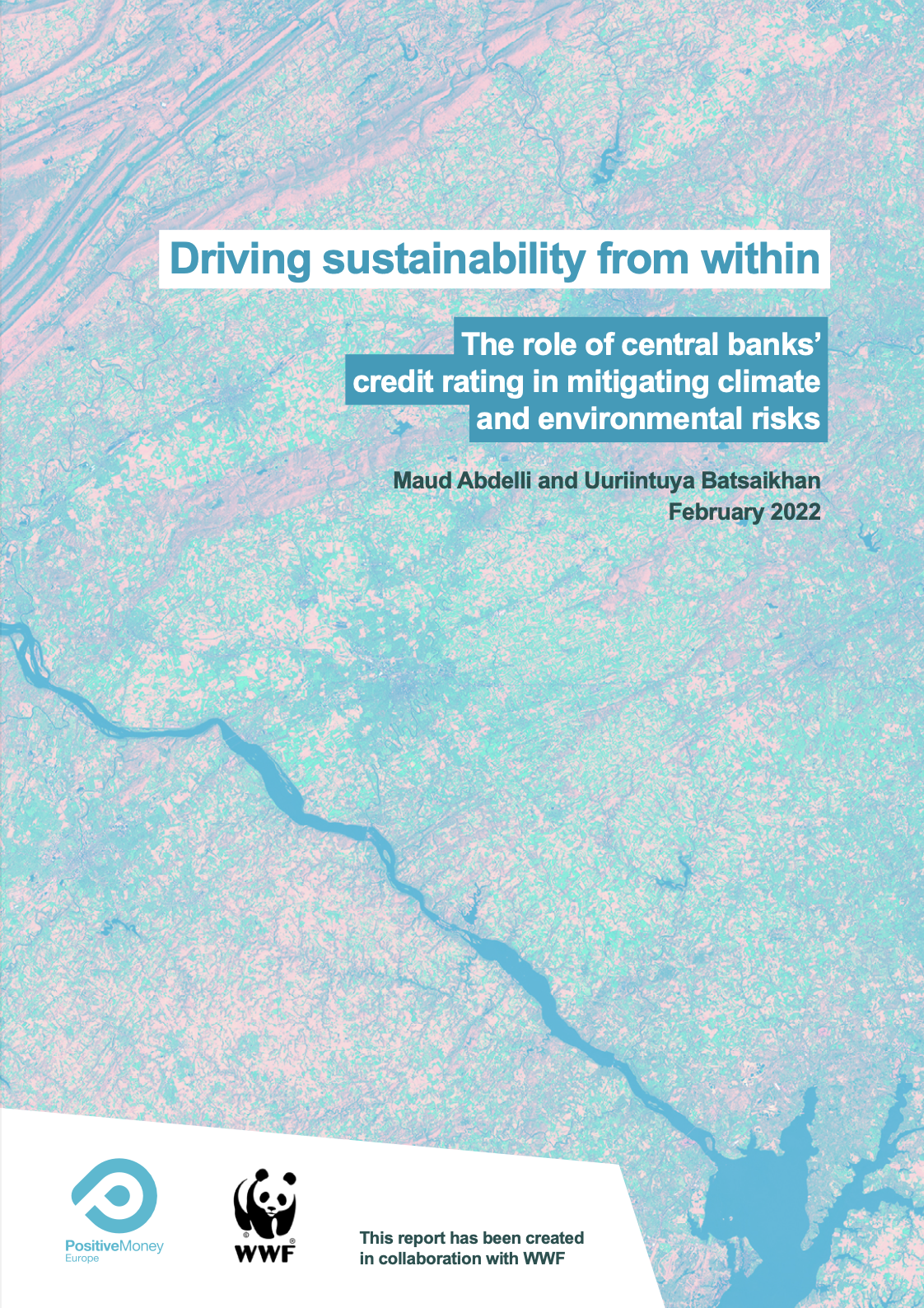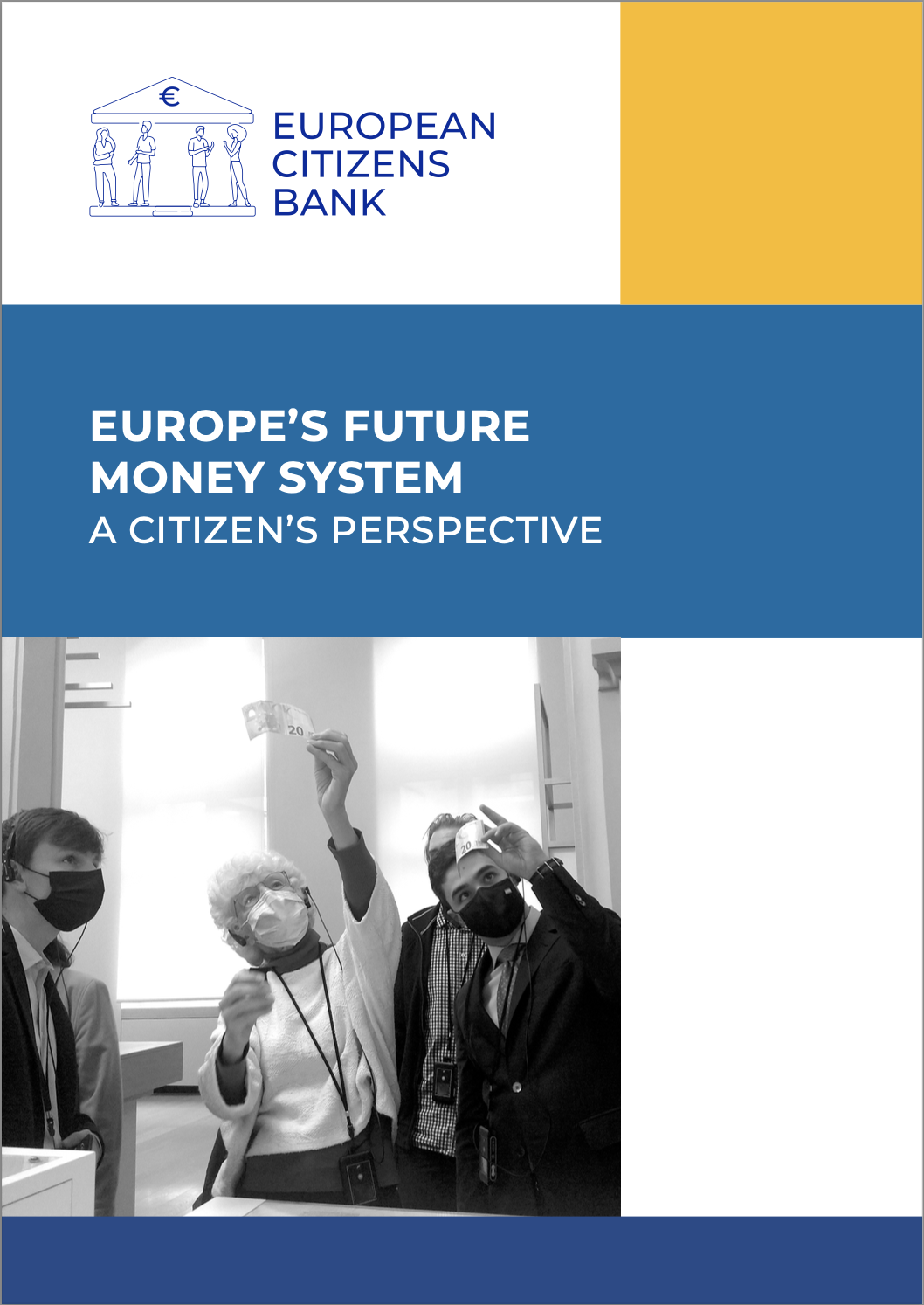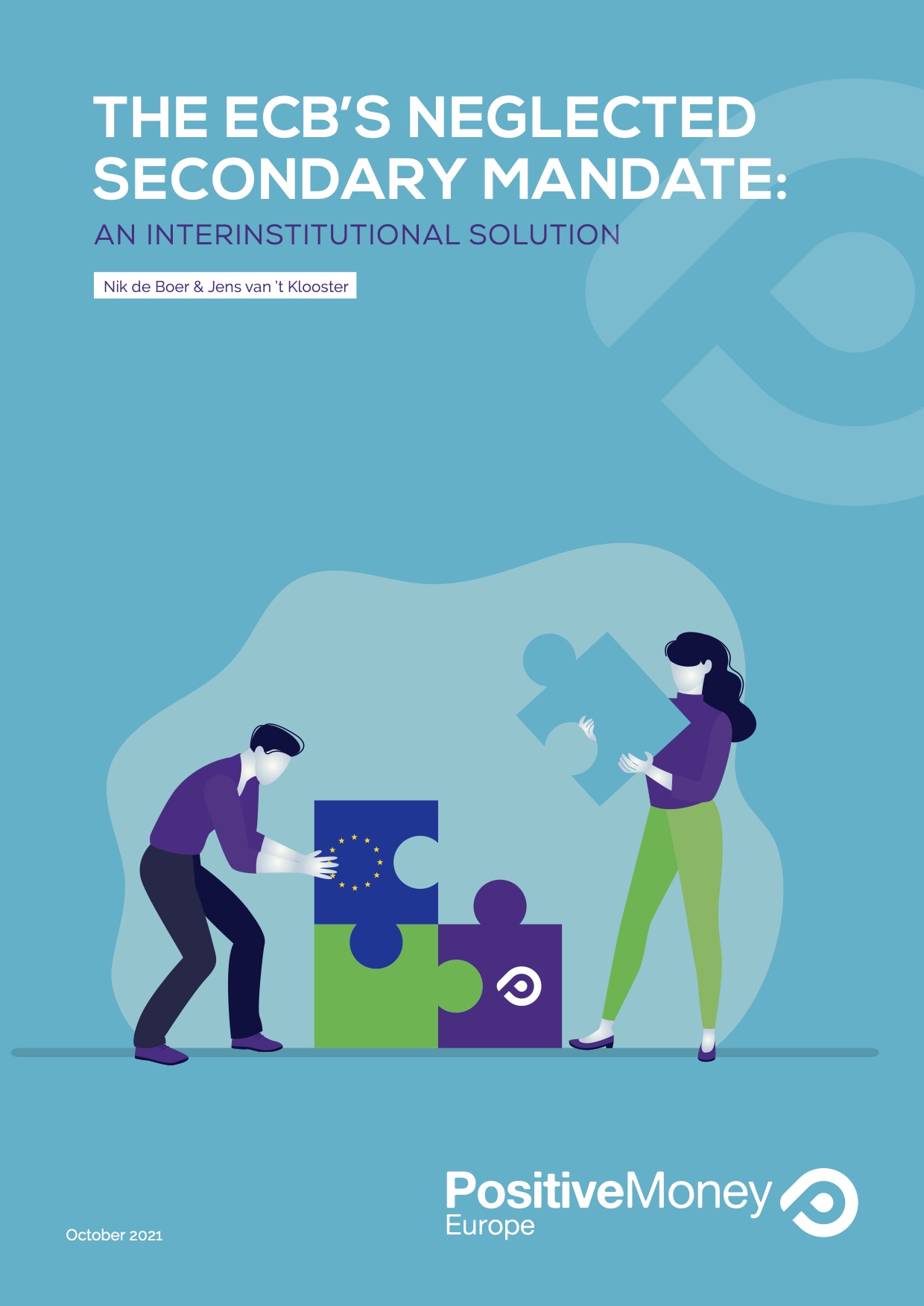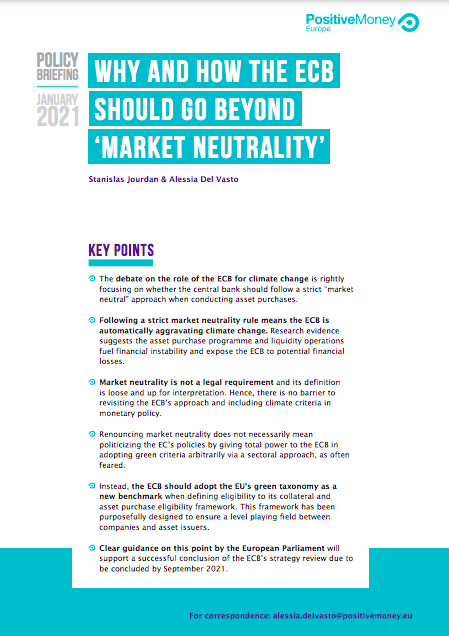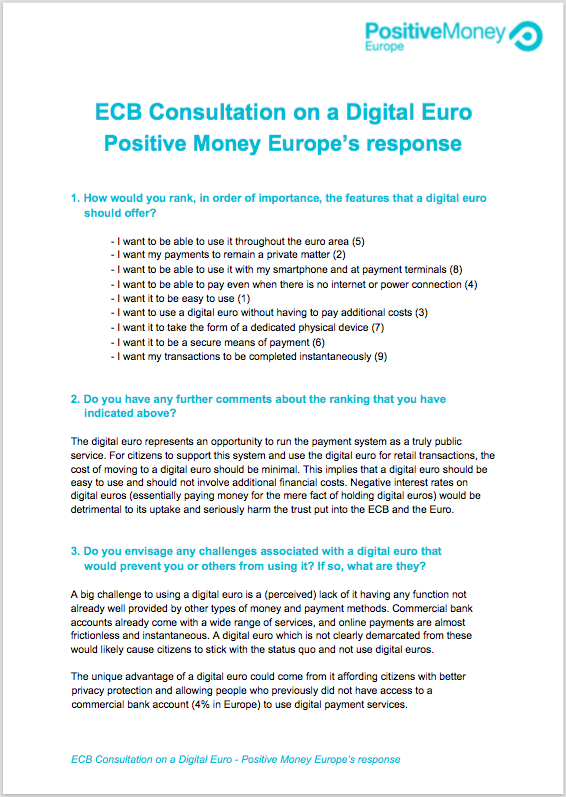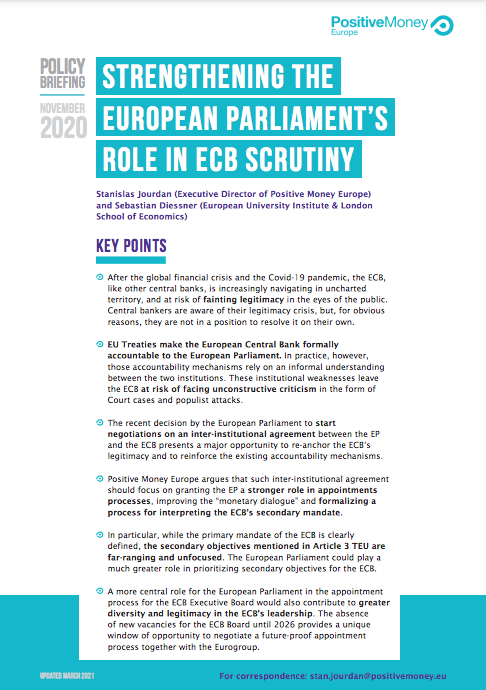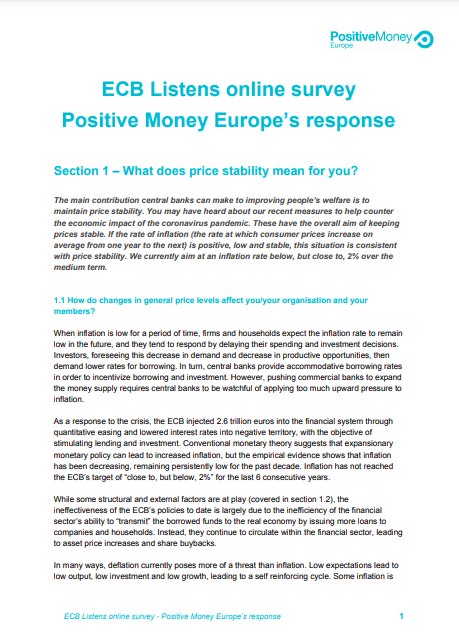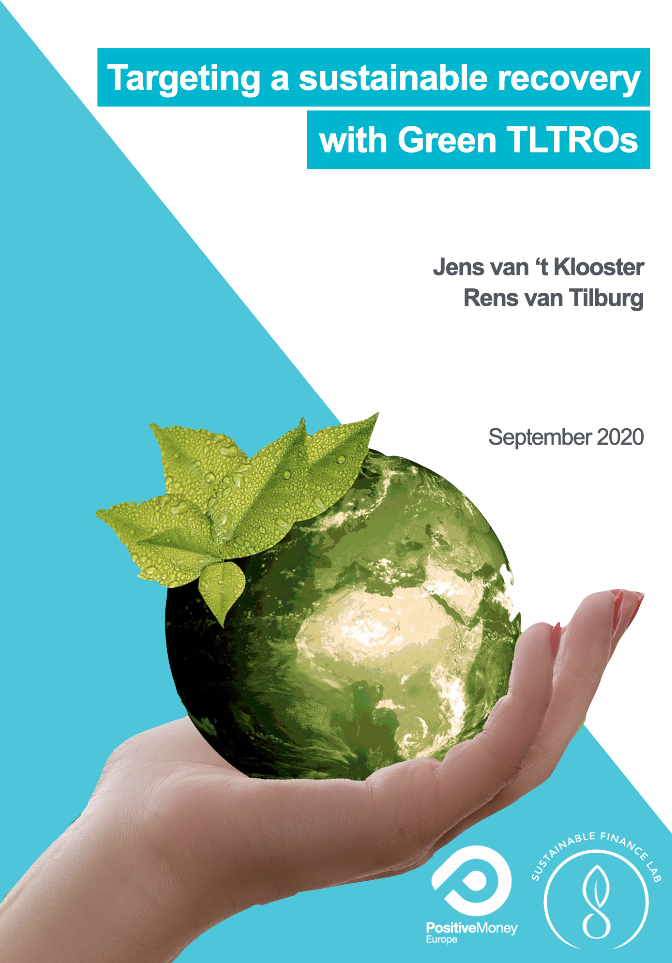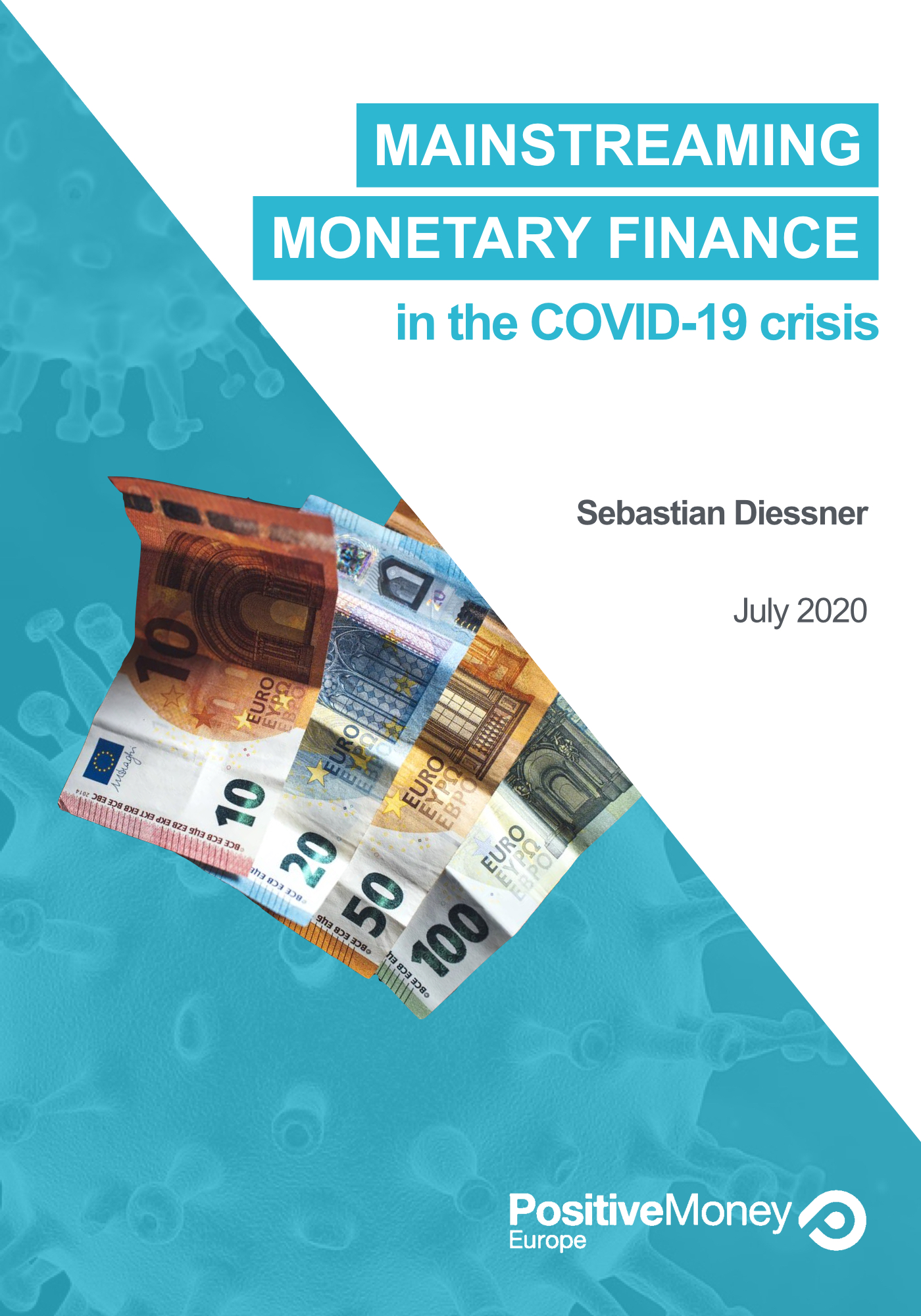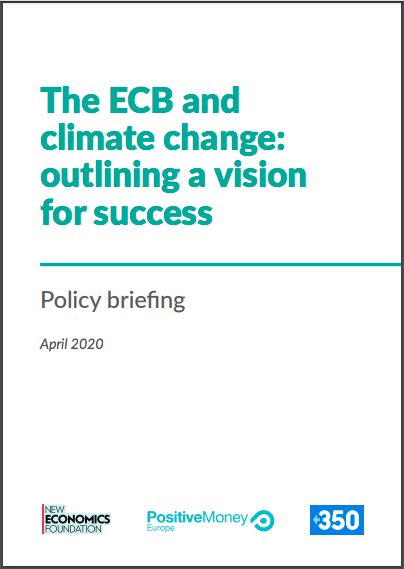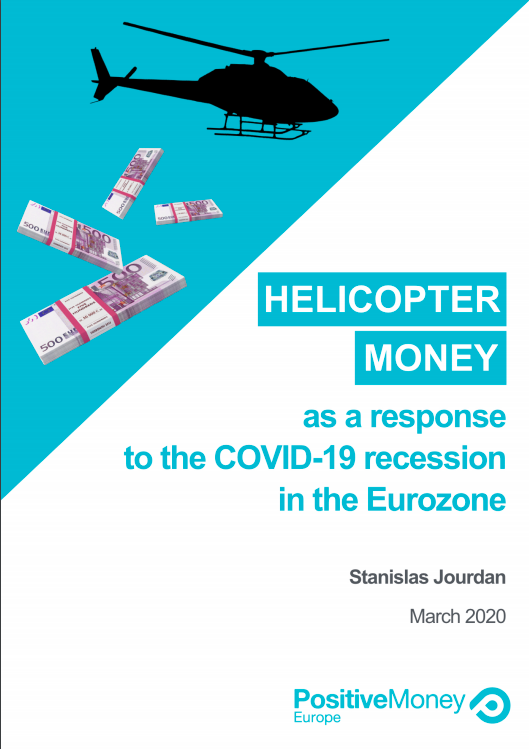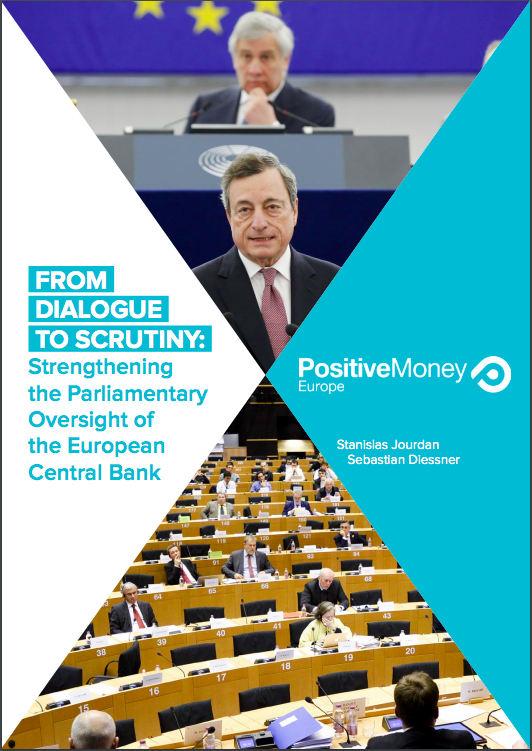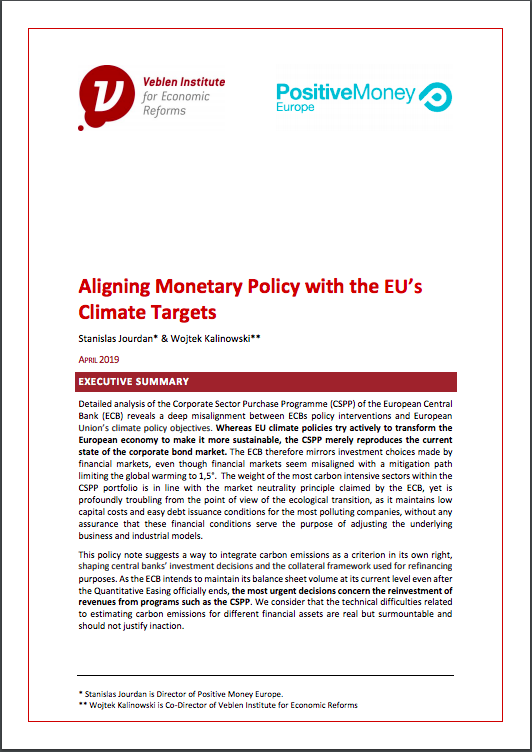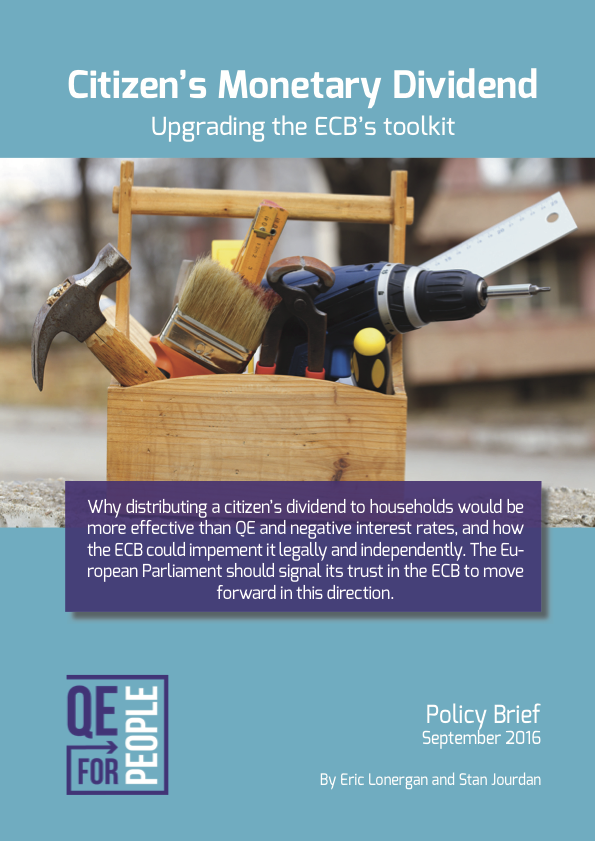Our Publications
Inflation as an ecological phenomenon (February 2024)
This policy report co-authored with Grantham Research Institute shows clearly how the planet’s worsening environmental situation and a reliance on fossil fuels both contribute to rising prices. It states that in the immediate future, to avoid persistent environment-related macroeconomic instability, central banks must acknowledge the existence of fossilflation and climateflation, and adapt their policymaking accordingly.
A roadmap towards greening the European Central Bank (January 2024)
This policy report explores the role of the European Central Bank (ECB) in mitigating climate change and environmental degradation. This report underscores the urgency of addressing these issues, which stand as some of the most pressing challenges we are facing today.
A digital euro for the people: position paper (June 2023)
The digital euro presents an opportunity to reimagine our monetary system in a way that prioritises the interests of people and society. Together with the Veblen Institute, we have published our position paper to contribute to the design and development of a digital currency that truly serves people as a public good.
Shedding light on a blind spot: the accountability of the Eurosystem national central banks (April 2023)
Eurosystem national central banks have very different procedures when it comes to reporting to political authorities, and are less accountable than the European Central Bank, shows this new research paper. The Bundesbank has the weakest degree of accountability, while Greece and Lithuania, Estonia and Belgium emerge as the most accountable central banks.
How to stop the wild green gold rush: credible ESG ratings (February 2023)
The market for environmental, social and governance (ESG) rating and data is expected to grow immensely in the next decades. This brief zooms in both on the integration of ESG risks into “traditional” operations of Credit Rating Agencies (CRAs) as well as on the emergence of a market exclusively dedicated to ESG rating. As will become clear, the market for ESG ratings suffers from serious shortcomings, a lack of transparency and standardisation, significant biases and conflicts of interests, and a dependence on large, oligopolistic, credit rating agencies.
Climate change versus price stability: how “green” central bankers and Members of the European Parliament became pragmatic (yet precarious) bedfellows (June 2022)
This study traces how climate change became a topic in Europe’s monetary policy. Utilising a novel and extensive dataset, it shows how the European Parliament, early on, called for a greener monetary policy and eventually allied with members of the ECB to forge a consensus on monetary policy and climate change.
Driving sustainability from within: the role of central banks' credit rating in mitigating climate and environmental risk (February 2022)
This report proposes expanding the role of Eurosystem’s own internal credit assessment systems, the so-called ICASs, to integrate climate and environmental risks. We see the increasing role and potential of C&E risk integration into ICASs as a concrete, workable and impactful way to green the collateral framework.
Europe's future money system: a citizen's perspective (February 2022)
This is a report on the European Citizens’ Bank project, a first attempt by Positive Money Europe and its partners to empower citizens, irrespective of their background knowledge, to discuss monetary policy in the Eurozone, and tell policymakers what matters to them.
The ECB’s neglected secondary mandate: an inter-institutional solution (October 2021)
This report proposes to break the deadlock on the ECB’s secondary mandate. Rather than cherry-picking its secondary objectives, the ECB should coordinate with other EU institutions to seek clarity on which EU priorities the ECB should support.
Money looking for a home: how to make the ECB's negative interest rates pay for building renovations (February 2021)
This policy paper proposes to turn the European Central Bank’s Targeted Longer-Term Refinancing Operations (TLTROs) programme into a dedicated financial instrument to scale up bank loans for energy efficiency and building renovations.
With its “Renovation Wave” initiative, the European Commission has rightly identified improving the energy efficiency of buildings through renovations as a key priority for the EU’s climate strategy. However, without scalable financial firepower, the European Commission is doomed to disappoint on its ambition to double the pace of building renovation by 2030.
Why and how the ECB should go beyond ‘market neutrality‘ (January 2021)
To ensure monetary policy does not conflict with the EU’s carbon neutrality targets, the European Central Bank must replace its current ‘market neutrality’ approach and rely instead on the EU taxonomy.
This policy briefing explores how the principle of market neutrality clashes with the ECB commitments on climate change, while also representing a financial risk for its balance sheet.
Digital Euro: Positive Money Europe's survey response (January 2021)
Responding to a consultation launched by the European Central Bank on the future introduction of a digital euro, Positive Money Europe outlines how a digital euro could be designed so it truly benefits people.
A digital euro would be the digital equivalent of cash, and the ECB is currently preparing for its potential implementation. The survey included questions on the challenges associated with a digital euro, the role of banks, the managing of the quantity of digital euros and the role organisations who responded could play.
Strengthening the European Parliament’s role in ECB scrutiny (November 2020)
The European Parliament’s (EP) current ability to hold the European Central Bank (ECB) to account is riven with pitfalls and limitations.
This lack of accountability is weakening the ECB’s public legitimacy. For people across Europe to trust the ECB enough to play its role, the bank must be held accountable for its decisions.
This briefing outlines 12 recommendations on how the EP could improve the way it scrutinises the ECB.
The ECB Listens Survey: Positive Money Europe's response (September 2020)
The European Central Bank launched in 2020 a survey asking individuals and organisations based in the eurozone for their views on the bank’s current monetary policies, as part of the upcoming Strategic Review. The survey encouraged respondents to answer questions on price stability, economic concerns, their own priorities and how the bank communicates with people.
Positive Money Europe has submitted a comprehensive response explaining how the bank can meet its inflation target, honour its environmental obligations and improve its diversity.
Targeting a sustainable recovery with Green TLTROs (September 2020)
The EU today faces two dramatic challenges: the COVID-19 Pandemic and the climate transition. The EU’s recovery plan for the pandemic falls far short of the estimated €2 trillion needed for achieving a sustainable recovery in line with the EU’s environmental objectives.
This report from Positive Money Europe and the Sustainable Finance Lab explains how the European Central Bank can incentivize private banks to lend more money for green investments. By tweaking its Targeted Longer-Term Refinancing Operations (TLTROs) programme, the ECB could make green lending much more affordable for small businesses and households.
Mainstreaming monetary finance in the Covid-19 crisis (July 2020)
With Eurozone governments spending huge amounts to fight the recession caused by Covid-19, the debt sustainability debate and how to manage it will only intensify in the coming months.
This report, written by Sebastian Diessner, assesses the merits and drawbacks of different monetary finance proposals with the potential to revive the euro area economy. It seeks to structure the debate on how the ECB should do this by ordering, categorising and assessing the monetary policy options it has at its disposal to tackle the upcoming recession.
The ECB and climate change: outlining a vision for success (April 2020)
In this policy briefing, co-written with the New Economics Foundation and 350.org, we offer policymakers a list of recommendations that, if implemented by the ECB, would constitute a successful strategic review from a climate justice perspective.
Helicopter money as a response to the Covid-19 recession (March 2020)
This report outlines why and how “helicopter money” should be deployed as soon as possible in the Eurozone. It summarizes the benefits of using helicopter money in the context of the Covid-19 crisis.
It aims to help policymakers carefully prepare for the practical implementation of helicopter money. It clarifies how it can be implemented swiftly, legally, and democratically in the Eurozone context.
From dialogue to scrutiny: strengthening the parliamentary oversight of the European Central Bank (April 2019)
Aligning monetary policy with the European Union's climate targets (April 2019)
This analysis of the European Central Bank’s corporate bonds portfolio reveals a worrying gap between the ECB’s quantitative easing programme and the European Union’s climate objectives.
This report, co-written by Stanislas Jourdan (Positive Money Europe) and Wojtek Kalinowski (Veblen Institute), includes an exclusive analysis of the corporate-sector purchase programme (CSPP) by the European Central Bank (ECB). The report was originally published in French (here).
Citizens' Monetary Dividend: Upgrading the ECB's toolkit (September 2016)
The main contribution of this policy briefing is to show why helicopter money can be justified on legal grounds as a monetary policy instrument for the ECB. This key point refutes recurring claims that such a scheme would amount to “fiscal policy”.
Sign up to our emails
We promise never to sell or swap your details and you can change your preferences at any time. To do so, simply call +32 2 880 04 34 or email info@positivemoney.eu
FOLLOW US
Latest news on sustainable finance

Implications of the ECB’s new operational framework for the green transition
On Wednesday March 13, 2024, the European Central Bank (ECB) announced changes to its operational framework, the toolbox it uses to implement its monetary policy. Think of it like the control panel of a car, with the ECB adjusting the settings (interest rates) to keep the car (financial conditions and prices) running smoothly. The operational framework relates to how the ECB adjusts these settings, which is to say the mechanisms by which it sets interest rates.

Navigating the flood: the critical need for climate risk disclosure in adapting to climate change
Basel Committee sets the stage for deeper scrutiny of climate-related financial risks

